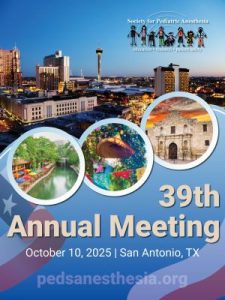Welcome to Wellbeing Curriculum!
This education toolkit is the coordinated effort of a national collaboration of content experts in education and wellbeing, spearheaded by thought leaders from the Society for Pediatric Anesthesia Committee on Wellbeing. The curriculum is designed to cover issues of significant impact to physician wellbeing, with particular attention to topics required by the Accreditation Council for Graduate Medical Education (ACGME).
The content is designed to be used with practitioners of all levels, from medical students to attendings, from fellows to advance practice nursing colleagues, and can readily be used in combined and interprofessional groups.
The curriculum is executed in two phases:
- “pre-work” to be completed independently by participants and the facilitator in advance, and
- a live/synchronous facilitated session
Each component requires some time; approximately 45 min for the participant pre-work, and an hour for the live facilitated discussion. The content for each module is designed to engage and inform participants with assigned pre-work activities, which should be distributed to participants at least a week in advance of the live, facilitated session. The facilitator should also complete the pre-work assignments to ensure familiarity with the participants’ exposure prior to the live group session.
Each module has two portals: one for facilitators and one for participants.
The facilitator portal contains material to equip each facilitator with a solid grasp of the topic and guidance on facilitating the content with:
- a “How to Use this Curriculum Guide” which also includes “Facilitation Best Practices”
- a highly annotated, case-based discussion facilitator guide for the topic (to be reviewed prior to the live session)
- a non-annotated case-based facilitation guide for use during the session
The participant portal contains several pieces of content to be explored prior to a synchronous or live facilitated session. The “pre-work” from the participant portal include:
- a pre-recorded video (approx. 20 min), developed by content experts
- interactive pre-work content to be completed prior to a live facilitated session
Each participant portal also houses a topic-specific annotated resource guide for reference or further content exploration after completion of the live session.
Please help us make the curriculum great. Give us your feedback at Wellbeing Curriculum Feedback or scan the QR code.
Please also encourage all participants to fill out the same evaluation.
We hope this content and format work for you! Please don’t hesitate to email the lead developers Stephanie Black, MD EdM ([email protected]) and Laura Petrini, MD, MSEd ([email protected]) with any questions or feedback! And stay tuned for future module development as we expand our content!
Learn well!



